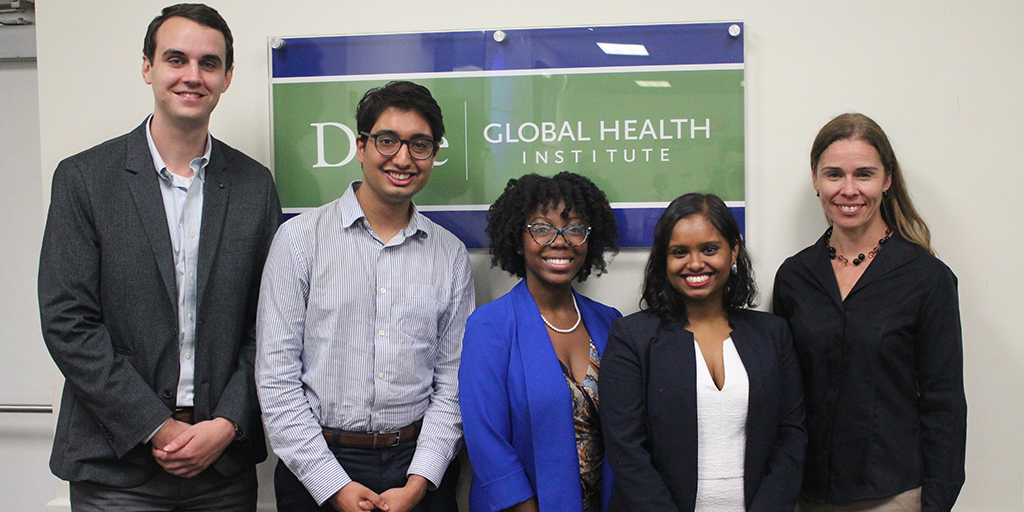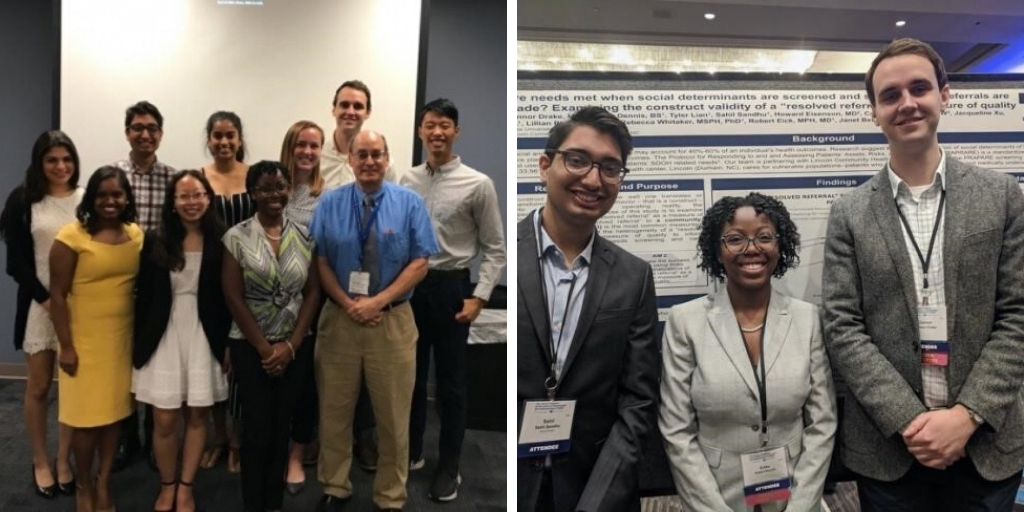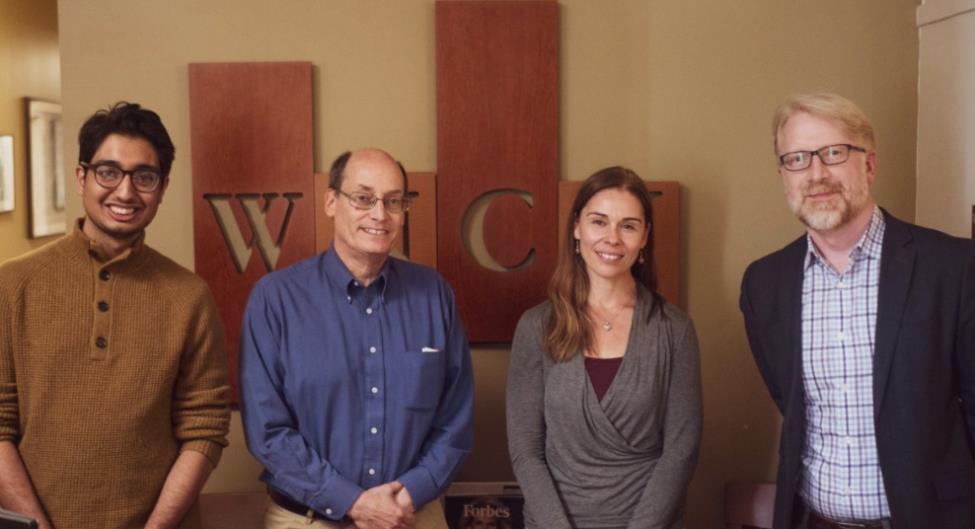Addressing the Social Determinants of Health
Project Team

Team profile by team members Sahil Sandhu, Connor Drake, Meril Pothen, Elizabeth Gu, Anisha Watwe, Kate Kutzer, Diwas Gautam, Erika Dennis, Tyler Lian, Elmira Hezarkhani and Dr. Janet Bettger, and colleagues from the Lincoln Community Health Center: Howard Eisenson, Carolyn Crowder, Nekoba Mutima, D’Nicole Tangen and Diana Marroquin
Addressing the social determinants of health (SDOH) is a critical step in reducing health disparities. Leading health agencies have organized SDOH into six groups: food security, economic stability, education, neighborhood and physical environment, community and social context and the healthcare system. Studies indicate that these social and economic forces account for nearly 70% of all health outcomes.
While there has been considerable and quality research identifying SDOH and the mechanisms that explain their impact, the best approaches to integrating health services with community and social services are yet to be defined.
Community health centers are at the forefront of interacting with patients who face unmet social needs. In Durham, Lincoln Community Health Center (LCHC) is a trusted community institution, known for providing high quality care to low-income and uninsured people in the community. LCHC is also at the cutting edge of reimagining the role of primary care to be more responsive to upstream drivers of health by screening and responding to their patients’ social needs.
Our Bass Connections team designed and implemented a novel approach to support LCHC’s effort to integrate social care and health care delivery. The idea of the “Help Desk” is to harness the effort of Duke University students to support the health care teams at LCHC to ensure patients can connect with needed social services and community resources. These student volunteers, eager for meaningful clinical experiences, are a low-cost and untapped resource that can serve as “community resource navigators” to assist patients with accessing resources to address unmet social needs.

As part of this initiative, there have been several research questions posited associated with “Help Desk” development, feasibility, implementation, and effectiveness. Our team organized across three different task forces: Health Services Delivery, Quality Improvement and Evaluation, and Health Policy and Community Engagement. Across these task forces a variety of work products were advanced including data analysis for quality improvement, community outreach, and designing training to onboard additional volunteers. This allowed for specialization and defined roles while simultaneously advancing a shared goal to improve patient care and inform policy related to health and social care integration.
The 2019-2020 academic year has had notable accomplishments including disseminating the “Help Desk” model at the North Carolina Community Health Center Association’s Annual Conference as an oral presentation in the fall. This work is particularly relevant given the unique state policy context in North Carolina which includes a major transition for the state’s Medicaid program which includes a greater emphasis on SDOH and population health management. The project team has also had the opportunity to learn about research methods and presented original research at the 12th Annual Academy Health Conference on the Science of Dissemination and Implementation in Washington DC. We presented research titled, Are Needs Met When Social Determinants Are Screened and Social Service Referrals Are Made? Examining the Construct Validity of a “Resolved Referral” as a Measure of Quality and Development and Implementation of a Volunteer Community Resource Navigator Program to Address Patients’ Unmet Social Needs. The latter was nominated for the conference’s Best Poster Award.

To share the findings of this work, the team has also participated in a variety of conferences and presentations are research seminars including presenting at the Duke Global Health Institute. The “Help Desk” was also featured on the popular podcast and radio show, The Measure of Everyday Life. This applied project with an active research portfolio has been complemented by a classroom experience that synthesizes this work with important context related to health equity, disparities, community engagement, and the science of implementation or organizational development. The team has embraced a culture of teamwork, communication, and service.
Undergraduate team members Diwas Gautam ’21 and ABSN candidate Erika Dennis share their personal reflection on their experience on the team as the Health Service Delivery task force focused on the operations of the “Help Desk”:
“(I’ve learned)… that teamwork doesn’t necessarily have to mean doing everything together, rather it is dividing tasks among team members based on their expertise and coming together for the bigger picture and feedback. Our team divided tasks among each other, which kept each of us accountable and helped us complete our goals. Moving forward, as we work with different groups or continue to work on this project, we will be mindful of this lesson.” –Diwas Gautum
“Reflecting on lessons past, Help Desk has strengthened my knowledge about civic and community engagement, which is truly at the heart of what we do! The primary takeaway from my participation in Help Desk is upholding and maintaining respect for our community partners and stakeholders. With this in mind, it is important that one becomes immersed in the community and understands the historical context that influence health policy and social behavior. In addition, Help Desk highlighted the significance of building community trust and conducting thorough assessments. More specifically, we are taught not to impose our ideas, perspectives, or potential solutions onto others without first understanding what is most important to them.” –Erika Dennis

